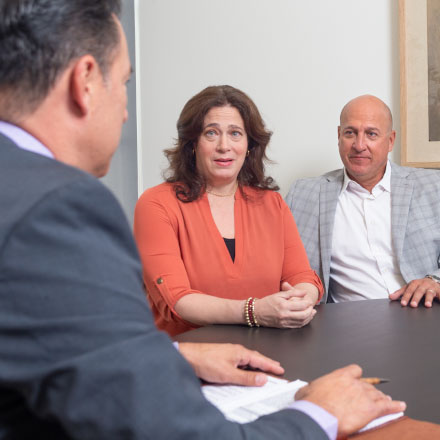- Insurance Guide
- Money Management
- Generational Wealth And Financial Planning
Don’t assume financial advice is for someone else

Historically, the financial advice industry has failed to reach Communities of Color, making it seem like financial advice is only for people who are wealthy and white.
The reality is that financial advice can be an important tool for all of us as we make decisions that affect the security and future of our loved ones. Unless you’re an expert, you could probably use some guidance. That may be especially true of multicultural consumers who are trying to overcome the wealth gap and trying to build financial security that can be passed down to future generations.
Some of us might be lucky enough to have a friend or family member who is a financial expert. If not, you might want to consider getting the help of a professional financial advisor.
Where to start
You have a number of options for getting financial advice. One is through your credit union. According to our research, multicultural consumers are more likely to reach out to a financial advisor through their credit union, and many trust the experience and recommendation of their credit union when deciding which financial advisors to use.1
If you don’t belong to a credit union, you might want to consider joining one.
You don’t need to be wealthy
One reason you might never have talked to a financial advisor is that you think you don’t have enough money. According to the research we have done at the TruStage Multicultural Center of Expertise, in partnership with our Center for Advisor Excellence, even many well-off bicultural Hispanic consumers say they don’t have enough money to invest.1 But that’s often not the case. For one thing, you can begin investing with only a modest amount of money and increase your investing as your financial situation allows. Also, remember there’s an “opportunity cost” for not investing. A small amount of money invested wisely can make a difference to your family’s future. But if you don’t start, you give up the opportunity to build that wealth.
Make sure your values are respected
Finding a good fit means working with an advisor who understands your situation and respects your values. For example, our research shows that Hispanic consumers view personal finance as a family endeavor. Fifty-two percent stated they are financially tied to their families, compared to 33% for non-Hispanics.1
Also, our research shows that affluent Hispanic and African American consumers want their good fortune to improve the lives of others.1 If those are values you share, make sure your financial advisor understands and respects your commitment to community improvement and social responsibility.
Make sure your goals are understood
Different people see financial success in different ways. Many affluent Black and bicultural Hispanic Americans see owning property and businesses as tangible signs of wealth.1 If you share those goals, make sure your financial advisor understands that and is prepared to help you find opportunities for investing in those areas.
Don’t put it off
It’s encouraging to see that, today, more and more people of color are seeking out and getting the financial advice they want. In fact, multicultural consumers are, on average, almost 10 years younger than White consumers when they first reach out to a financial adviser.1 You can be part of that exciting trend. Whether you start big or start small, you can begin building generational wealth for your family.
Article by Opal Tomashevska, Multicultural Business Strategy Director at TruStage®.



